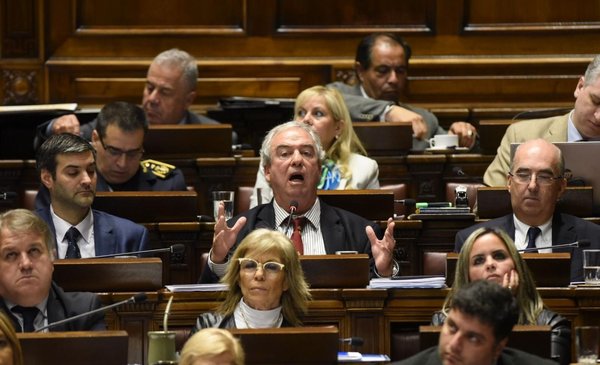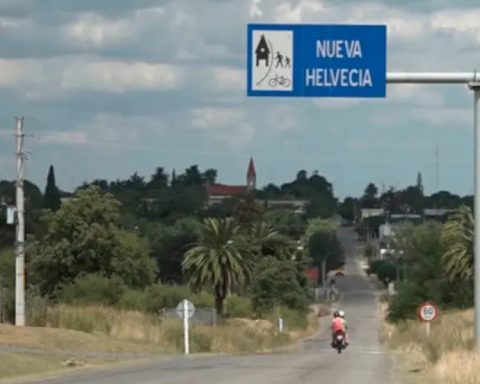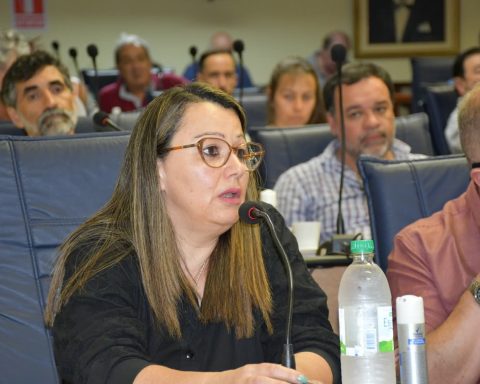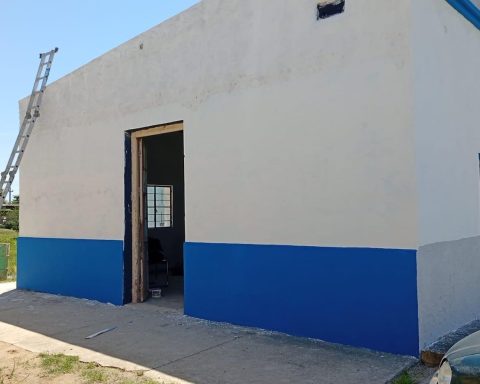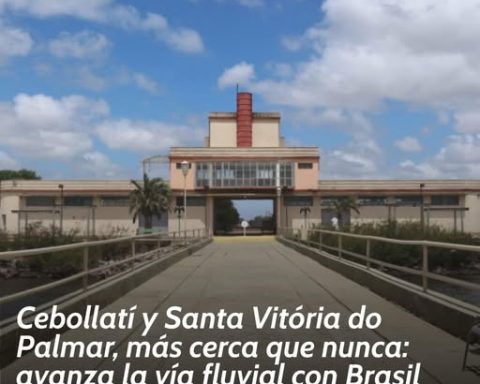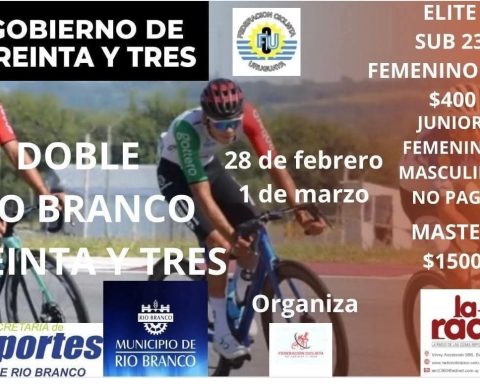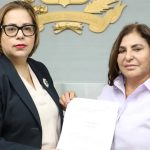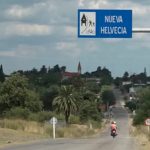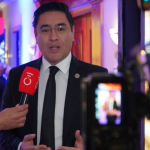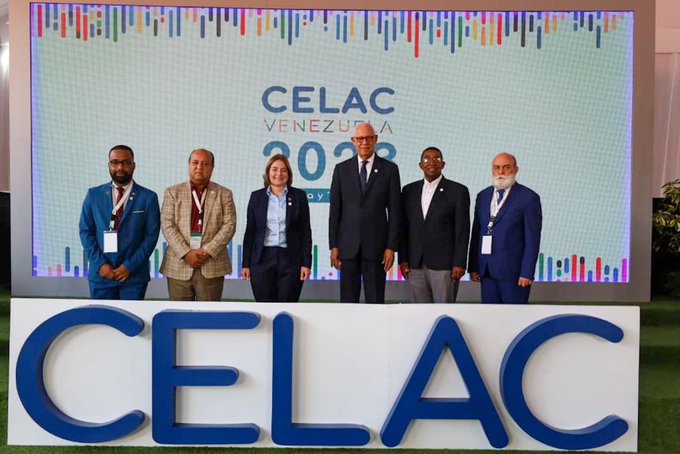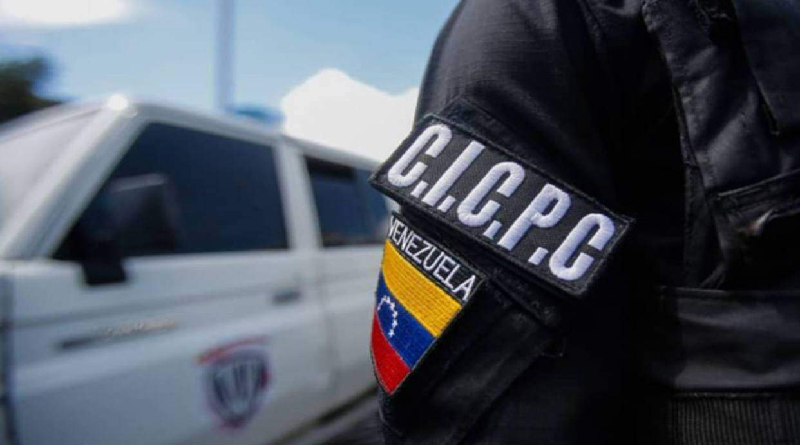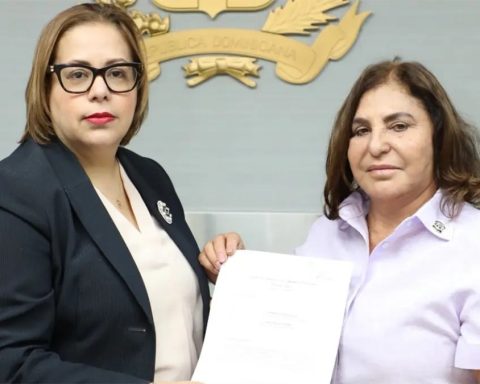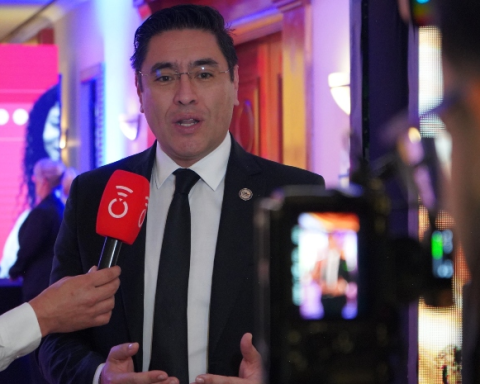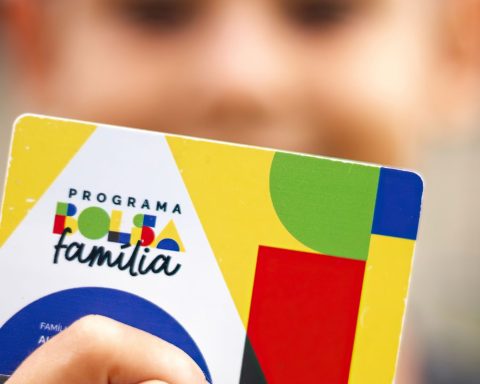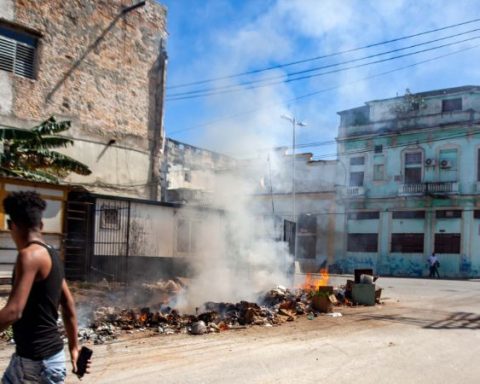After several hours of questioning, the home minister, Luis Alberto Heberdefended his management and assured that it is “repressing crime in the territory”, Meanwhile he broad front (FA) pointed out that the hierarch’s interventions confirm a “denial of realityregarding violence and security.
Minutes before 8:00 p.m., with the interpellation still underway (it began at 10:00 a.m.), Minister Heber led a press conference accompanied by Undersecretary Guillermo Maciel, the Director General of the Secretariat, Nicolás Martinelli, and the police leadership. .
There he highlighted various data that he had given hours before on camera: that 49 criminal organizations In the metropolitan area, the Police gave “hard blows” to 41, who they seized 10 tons of cocaine and 2.5 of base paste, and that the seized substances have a value in Uruguay of US$ 93 million and US$ 350 in Europe.
He also referred to the homicides –central theme of the summons to the minister by the opposition, since this crime increased 25% in 2022 compared to 2021–. In this sense, Heber affirmed that the criminal organizations that the Police fight they confront each other “in the territory” and generate these crimes, which the ministry cannot always foresee.
“These organizations clash over the entire territory, dispute areas and generate homicides, which We are very sorry but we cannot foresee this situation of confrontations between organizations that fight for the territory“, argument.
Despite these words, the minister pointed out: “We are repressing crime in the territory.” And he affirmed that the ministry is facing “a war” and in full “combat“.
“We are not satisfied, we have to continue working but we have more tools to better fight organized crime. We have a lot of faith in the months ahead to change the figures that are not yet reaching the levels we want,” he said.
Heber referred to the causes of the homicides and pointed out that “80% of the homicides in Uruguay are the product of people who are linked to the crime.” The minister maintained that this does not mean that the deaths are classified as “category A, B or C.” “We’re not saying it’s not important,” he insisted.
Criticism from the opposition
Ines Guimaraens
The questioning deputy for the Broad Front, Sebastián Valdomir
Minutes after the minister’s conference, it was the turn of the broad front (FA) to make a balance on the interpellation.
The questioning deputy, Sebastián Valdomir, from the Popular Participation Movement (MPP), pointed out that Heber’s interventions in the Chamber of Deputies “confirm the denial of reality“and the existence of a”very worrying situation“.
Valdomir ironized that the minister understands that the country is “much better than before” and that the authorities they fail to “dimension” the seriousness of the circumstances.
“The response given by the minister has been highly worrying. They they continue to associate that there are more deaths because drug trafficking groups are being fought and particularly to drug dealing in the base paste mouths. Last year, in the interpellation that the Broad Front made, he identified 45 criminal groups and today we found out that instead of 45 there are 49,” he said.
The deputy affirmed that no group was “deactivated”, but that they were beaten but continue to operate just like last year, despite having some members convicted.
“The plans of the Ministry of the Interior do not work“, he insisted. “It is the most complicated first semester since 2018,” said Valdomir in relation to the first six months of this year.
Legislator Gonzalo Civila, from the Socialist Party, stressed for his part that the country is experiencing a “alarming situation” in the matter of “violence and homicides”.
“We have heard from the minister a demand for a paradigm of war against something that has not been clear what it is, referring to collateral damage when talking about people killed,” he criticized.
